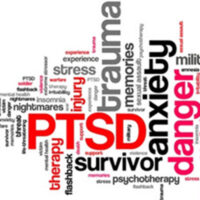Obtaining Damages for PTSD

If you are in an accident, you may immediately be considering only your physical damages. Certainly, physical damages are important and you deserve compensation for them if they are caused by someone else. But what about mental and emotional damages, specifically, what about post traumatic stress disorder (PTSD). Do you have PTSD, and if you do, can you be compensated for what PTSD is doing to you?
The Difference Between PTSD and Emotional Trauma
It is important to know there is no specific law that says that you can or cannot be compensated for PTSD. Rather, PTSD is considered a mental or emotional injury, just like anxiety, fear, or loss of the quality of enjoyment of life.
Unlike the generalized anxiety or depression that may be caused by an accident, PTSD has specific symptoms that lead to the specific diagnosis, and PTSD is generally considered longer-lasting than generalized emotional trauma. This is why you should get treatment from a counselor or mental health professional if you suspect PTSD, as it should be diagnosed by a specialist, and not a general practitioner.
PTSD Symptoms
PTSD symptoms can differ from person to person, and based upon what caused the PTSD, or how prolonged the exposure to the trauma was. A war veteran with extended exposure to traumatic conditions may have different symptoms than someone who was in a single traumatic accident. However, generally, symptoms of PTSD include:
- Constantly reliving the traumatic event/accident in the victim’s head. In serious cases, a victim may have a hard time distinguishing reality from the events that he or she is seeing in the mind.
- Avoiding situations similar to the one involved in the accident. Someone who was injured on a carnival ride may be unable to go near carnivals. Someone who witnessed a loved one die in a nursing home may be unable to go into nursing homes.
- Anxiety, difficulty in concentration, and a general feeling of being irritable.
Of course, accident victims are always candidates to develop PTSD, but even others, who do not experience trauma but witness it can develop PTSD. This is why so many first responders develop the condition, even when they themselves are uninjured.
Recovering for PTSD
The law allows for spouses to recover damages when their partner is in an accident (sometimes called a loss of consortium), and for parents and children to recover damages in some situations when their children or parents are in accidents, particularly if these individuals witnessed the actual accident—although PTSD can occur even if the person did not witness the accident.
If you are injured in an accident and sustain any kind of injury, whether physical or emotional, contact the Miami personal injury attorneys at Velasquez & Associates P.A. today with any questions you may have.
Resource:
psychiatry.org/patients-families/ptsd/expert-q-and-a
https://www.jvelasquezlaw.com/criminal-activity-can-lead-to-personal-injury-claims/
